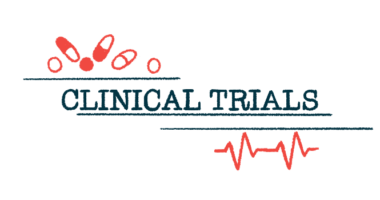FDA OKs clinical trials to test cell therapy for chronic hepatitis B
LioCyx-M004 first developed to treat liver cancer linked to HBV

The U.S. Food and Drug Administration (FDA) has given Lion TCR the green light to start Phase 1b/2 clinical trials testing LioCyx-M004, the clinical-stage biotechnology company’s experimental cell therapy for chronic hepatitis B.
The FDA clearance to launch the trials follows the agency’s granting of both fast track and orphan drug designations to the treatment candidate, initially developed for hepatitis B-related hepatocellular carcinoma, a form of liver cancer. Fast track status aims to speed the development of new treatments that show potential to fill unmet medical needs. Orphan drug designation offers extra incentives for drug developers investing in experimental therapies for rare diseases.
Lion called the FDA’s trial approval “the third major regulatory milestone” for LioCyx-M004 in a company press release
“This triple recognition from the FDA underscores the transformative potential of LioCyx-M004 and validates our strategic approach,” said Xiaoming Peng, PhD, CEO of Lion.
The hepatitis B virus (HBV) is transmitted by contact with bodily fluids and infects liver cells, leading to liver inflammation or hepatitis. In some cases, especially if the virus is contracted early in life, HBV leads to a chronic infection that can set the stage for liver failure and cancer.
LioCyx-M004 targets T-cells in treating chronic hepatitis B
Some vaccines can reduce the chances of HBV transmission, and available antiviral therapies can help manage chronic infections. Still, these treatments cannot cure the infection because they can’t eliminate cells harboring virus reservoirs.
T-cells are immune cells that can attack and kill virus-infected cells. Each T-cell is equipped with a specific molecular receptor that it uses to identify threats. LioCyx-M004 works by taking T-cells from a patient’s body and engineering them in a lab to equip them with receptors that can recognize hepatitis B virus-infected cells or virus-related cancer cells. The modified immune cells are then infused back into the patient’s body to go after the virus.
According to Lion’s website, the process takes less than two weeks to accomplish. The company said that preclinical and early clinical studies have shown that LioCyx-M004 is effective for eliminating HBV-infected cells.
“Having demonstrated promising antitumor and antiviral activity in liver cancer, we are now well-positioned to evaluate its impact on the underlying viral infection that drives cancer development,” Peng said.
While Lion originally was targeting LioCyx-M004 specifically to treat HBV-related liver cancer, the company has now broadened its scope: It’s pivoted to also develop the cell therapy for chronic hepatitis B infections more generally.
We look forward to initiating the [chronic hepatitis B] trial and exploring [LioCyx-M00’s] potential as a functional cure for this chronic infection.
“Our ability to successfully redirect our lead candidate from oncology to virology demonstrates the remarkable versatility and broad therapeutic potential of our platform,” said Tina Wang, MD, PhD, Lion’s chief medical officer.
The company noted that LioCyx-M00 has shown a favorable safety profile thus far in early testing.
“We look forward to initiating the [chronic hepatitis B] trial and exploring its potential as a functional cure for this chronic infection,” Wang said.
Lion did not provide details about the expected design or timing of the upcoming trials of LioCyx-M004 in chronic hepatitis B.







